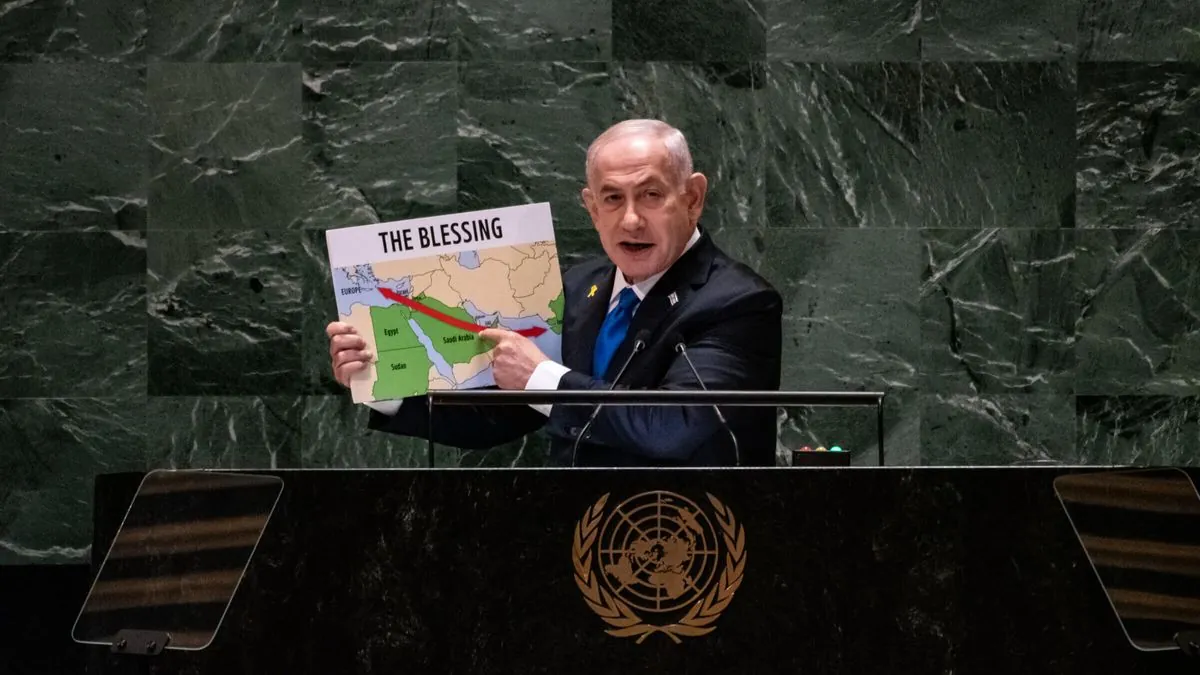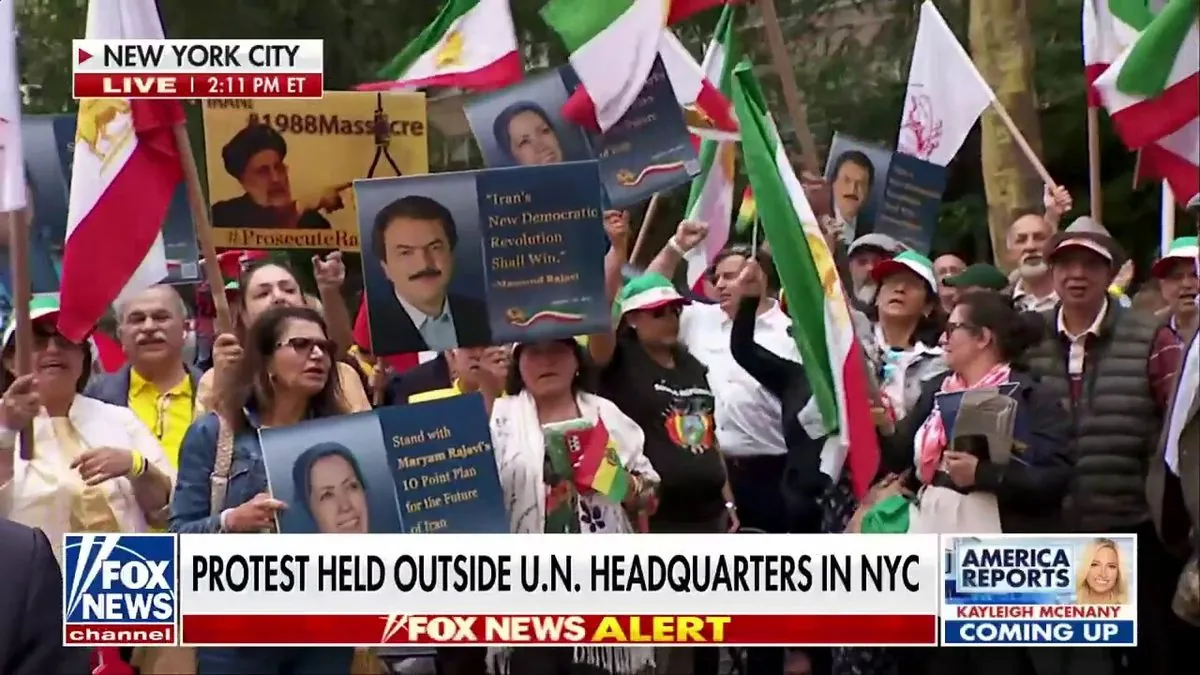Netanyahu Defies US Cease-Fire Proposal in Fiery UN Address
Israeli PM Benjamin Netanyahu rejected a US-proposed cease-fire in Lebanon during his UN speech, vowing to continue military operations against Hezbollah. The address heightened tensions and drew international criticism.

In a contentious address to the United Nations General Assembly, Benjamin Netanyahu, Israel's Prime Minister, staunchly rejected a United States-proposed cease-fire in Lebanon. The speech, delivered on September 27, 2024, underscored the ongoing tensions in the region and Israel's determination to continue its military campaign against Hezbollah.
Netanyahu's address came amidst escalating conflict between Israel and Hezbollah, which began approximately 11 months and 19 days ago. The Israeli leader's defiant stance contradicted recent diplomatic efforts by the US to broker a temporary truce, highlighting the complex dynamics at play in the region.
The Prime Minister, who has held office for a total of 16 years, emphasized Israel's military capabilities and resolve. He stated, "If you strike us, we will strike you," asserting that Israel's reach extends throughout the Middle East, including Iran. This rhetoric reflects the ongoing tensions between Israel and Iran, which have persisted since the Islamic Revolution of 1979.
Netanyahu's speech also touched upon the broader conflict in Gaza, which erupted following a Hamas-led attack on Israel about 11 months and 20 days ago. The Israeli leader's refusal to consider a cease-fire in this arena further complicates international efforts to de-escalate the situation.
"We will fight until we achieve victory, total victory. There is no substitute for it."
The United Nations, established in 1945 and now comprising 193 member states, has been a frequent forum for discussions on the Israeli-Palestinian conflict. However, Netanyahu's characterization of the organization as an "antisemitic swamp" that needed to be "drained" underscores the strained relationship between Israel and the international body.

The Israeli Prime Minister's address was met with significant opposition both inside and outside the UN. Numerous diplomats walked out during the speech, while thousands of demonstrators gathered in Manhattan to protest Israel's military actions in Lebanon and Gaza.
The ongoing conflict has its roots in a complex history. The Israel Defense Forces, founded in 1948, has been engaged in numerous conflicts with neighboring states and non-state actors. The United Nations Interim Force in Lebanon (UNIFIL), established in 1978, has long attempted to maintain peace along the Israel-Lebanon border, which stretches approximately 120 kilometers.
The current escalation echoes previous conflicts, such as the 2006 Lebanon War, which lasted 34 days and resulted in significant casualties. Israel's Iron Dome missile defense system, first deployed in 2011, has played a crucial role in intercepting rockets fired from Lebanon and Gaza.
As the international community calls for de-escalation, the situation remains volatile. The United States, which has vetoed over 80 UN Security Council resolutions critical of Israel since 1972, finds itself in a delicate position as it attempts to balance its support for Israel with efforts to promote regional stability.
The ongoing crisis also impacts humanitarian efforts in the region. The United Nations Relief and Works Agency for Palestine Refugees (UNRWA), established in 1949, continues to face challenges in providing aid amidst the conflict.
As tensions persist, the international community watches closely, hoping for a resolution that can bring stability to this long-troubled region.


































